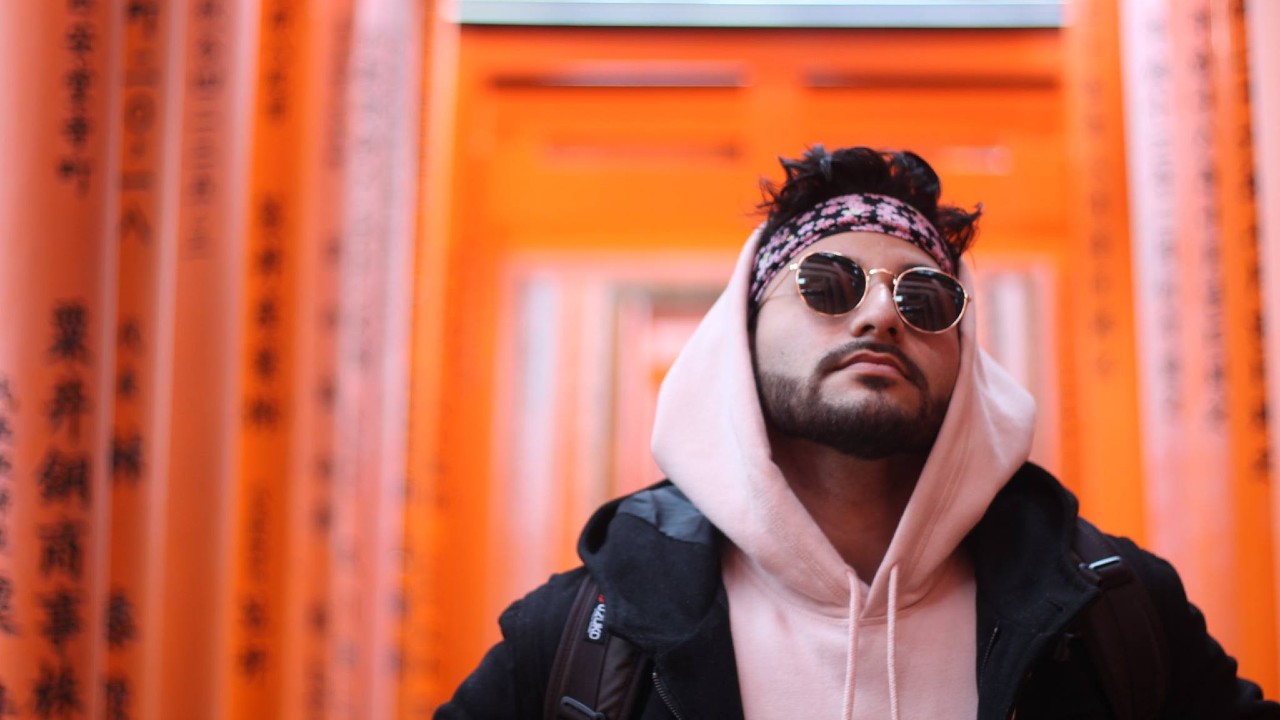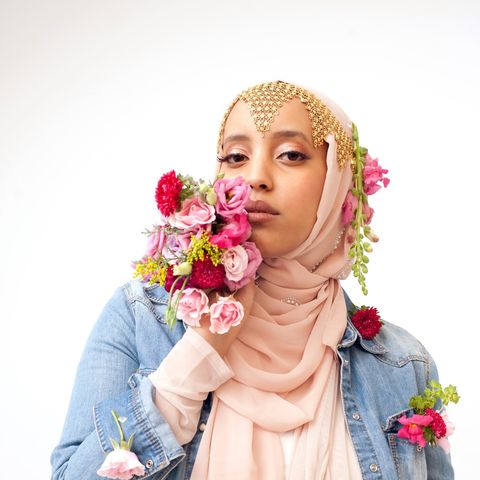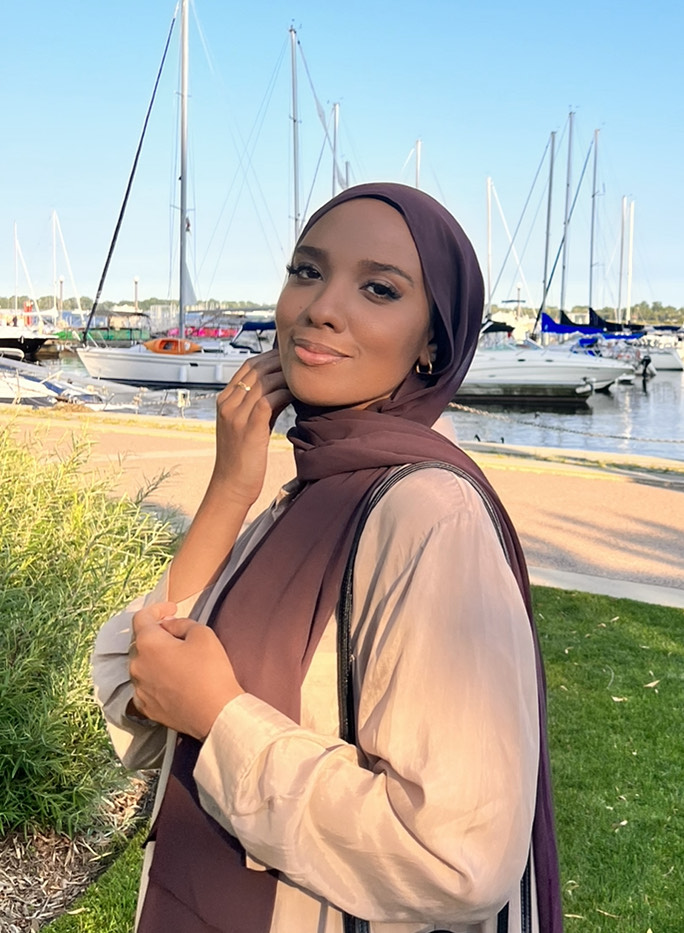Finding identity and community in Toronto’s Muslim poetry scene
It’s not always easy to put the words on the page, but storytelling is critical in creating compassion and equality.

The creative arts scene in the Greater Toronto and Hamilton Area has felt more important over the last few years. As the pandemic left people feeling unfulfilled and separated from friends, family, and society, many of us have sought necessary community and solace through art.
As it turns out, this follows a larger trend. A survey of over 60,000 young people aged 8 to 18 from the U.K.-based National Literacy Trust showed that reading and writing poetry had steadily become more popular from 2010 to 2022. A third of respondents said they wrote or performed poetry to feel connected to the world and to support causes that they cared about.
The Muslim community has not been immune to this trend. Poetry and spoken word in particular have become powerful tools to create the togetherness that our culture desperately needs now more than ever, especially among younger Muslims.
As a racialized Muslim author and spoken word poet myself, I can attest to this. Finding community has become a difficult but crucial battle in creating the social justice and unity our people deserve. Fighting through division, racialization, Islamophobia, and mental illness have become daily tasks.
Still, I know from experience: Storytelling that amplifies the voices of underrepresented Canadians is critical in creating compassion and equality.
Finding community in poetry
In recent years, Islamophobic violence has spiked in Canada and the GTHA. Think about the 2021 incident in London, Ont., which killed four people, or the 2017 Quebec City mosque shooting that killed six people. In my experience, this hatred stems from ignorance, and a lack of connection with real Muslims and contemporary Muslim stories.
When poetry and spoken word are used to express the humanity of Muslims, they get across crucial sentiments of comradery, compassion, respect, and support. The artform allows Muslims like me to properly represent themselves on a national stage, showcasing both their tribulations and triumphs in an effective way.
“As spoken word artists, we have a platform that we can use to leverage the voices of people in our community who need our support,” says Timaj Garad, a Toronto-based poet and musician.
Muslim cultural organizations are crucial to creating these platforms. In the GTHA, organizations like the programming hub Silk Road Institute and annual Mississauga-based MuslimFest are doing valuable work to centre Muslim voices.
As someone who has performed at MuslimFest, I can speak towards the exposure and stage it provides to you as an artist. It’s definitely a great opportunity, and provides community support for artists and small businesses alike.
Even at this kind of supportive event, however, it’s hard to forget the Islamophobic lens that Canadians often see us with — protesters have shown up at the event to argue against the ways of Islam. These experiences can create barriers and alienate Muslims artists and citizens.
“In all honesty, being a Black Muslim artist and a woman has been quite isolating,” says Garad. “Despite receiving support and invites to perform and work with many different communities, including the Muslim community, it’s been hard to build and nurture connections with other artists that share my identity.”

Finding faith through artistry
The Muslim community needs to find support in one another, especially in artistic circles, but how can artistry influence one’s own personal beliefs?
For poets themselves, their art often brings them closer to their faith, and lets them passionately explore it.
“I feel like poetry has definitely allowed me to deepen my connection to myself, and in turn, the many intersections of my identity, including my Muslimness,” Garad says.
To me, writing and performing poetry can be spiritual in their own way. Muslim artists can use this self-reflection to solidify their faith and identity.
“Introspection is encouraged in Islam, which influences me when working on anything, academic or artistic,” says poet and journalist Furqan Mohamed.
There is also a political significance to Muslim storytelling and spoken word. Sometimes it allows for the illumination of Islamophobic trauma, racialization, sexism, and so on. Other times, the artform allows Muslims to tell our natural and genuine stories, humanizing us where we are regularly demonized instead.

That said, putting the words on the page, or speaking that truth to an audience, isn’t always easy.
“There can also be shame or guilt wrapped up in particular subjects, or fear that our work may be weaponized against our people,” says Mohamed.
Building a spoken word community of Muslims and allies alike has provided some necessary support in this aspect, creating space for these voices to stand up and speak about whatever they feel is truly important. My own publisher, Toronto’s Mawenzi House, is a great example of this — an organization with a mission to amplify and create industry opportunity for multicultural and oppressed North Americans.
“People should always speak their truth,” Mohamed says. “At the same time, when your identity is politicized, you are often left with no choice but to be political in your work, leaving you boxed in as an artist. But political work … does not have to only be about what we resist, or the violence or oppression we face. It can also centre what is possible — dreams, desires, hopes, and more.”
If an artist is expected to speak on only one aspect of their character, it can minimize the entire movement.
“As a Muslim woman, I am expected to talk about topics that feel pertinent to the Muslim experience,” Garad says. “However, there is no singular Muslim experience, and I’m also not only a Muslim. I’m Black, I’m Ethiopian, I’m Harari, I’m a woman, I’m a plant lover, I’m a sister, a friend, and a cousin.”
I myself am an artist with persistent hope, and when I think of the future of this community, I think of us supporting one another for who we are holistically. I see us creating space and place for all disadvantaged people. I see a unity in the community that shows Canada who we are, what we stand for, and our determination to achieve it.
“Commitment includes listening, even when it’s uncomfortable,” Mohamed says. “That’s the only way true solidarity can form, and we can get where we need to be. And our art will be better for it.”
Code and markup by Bridget Walsh. ©Torontoverse, 2023